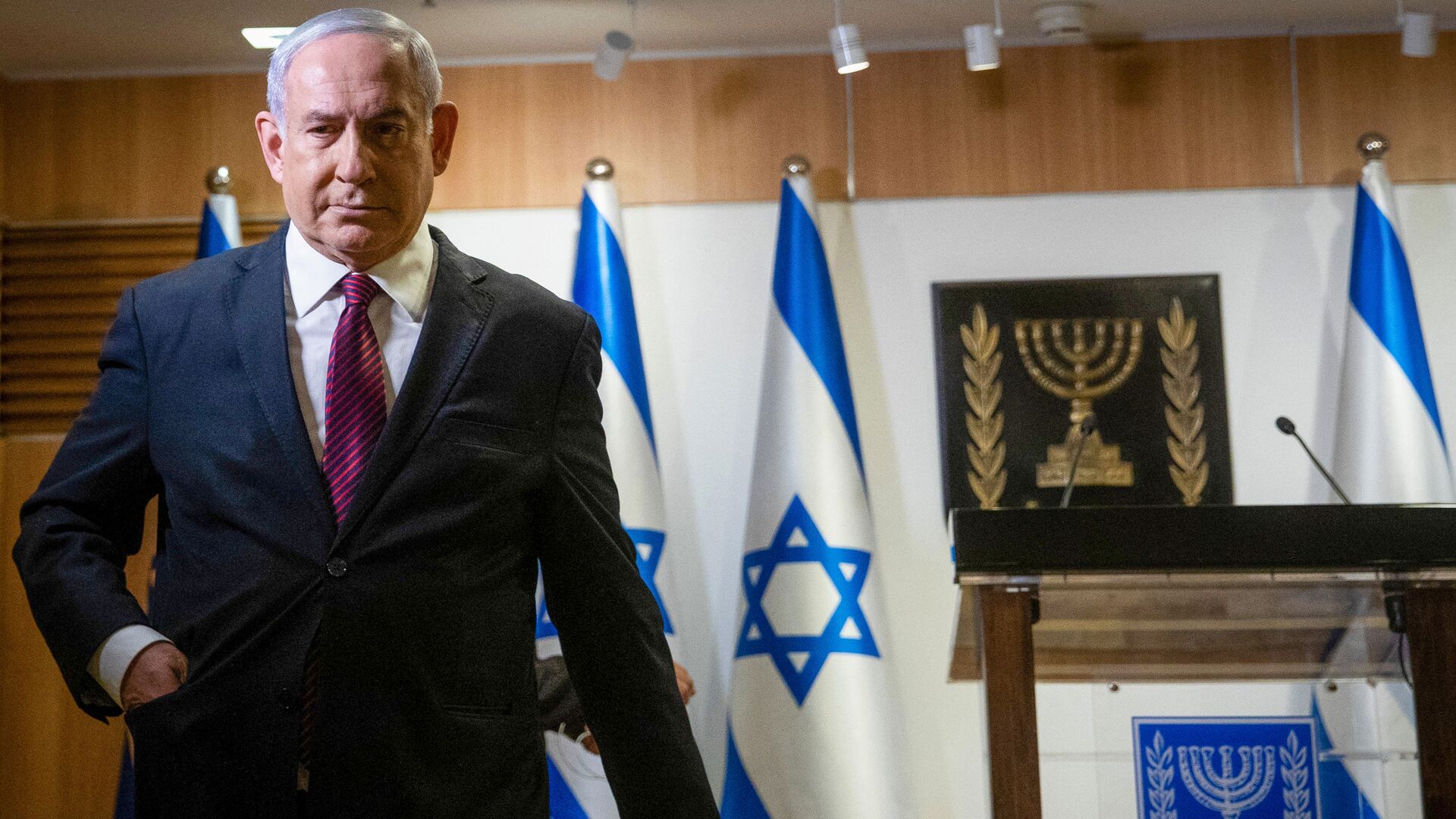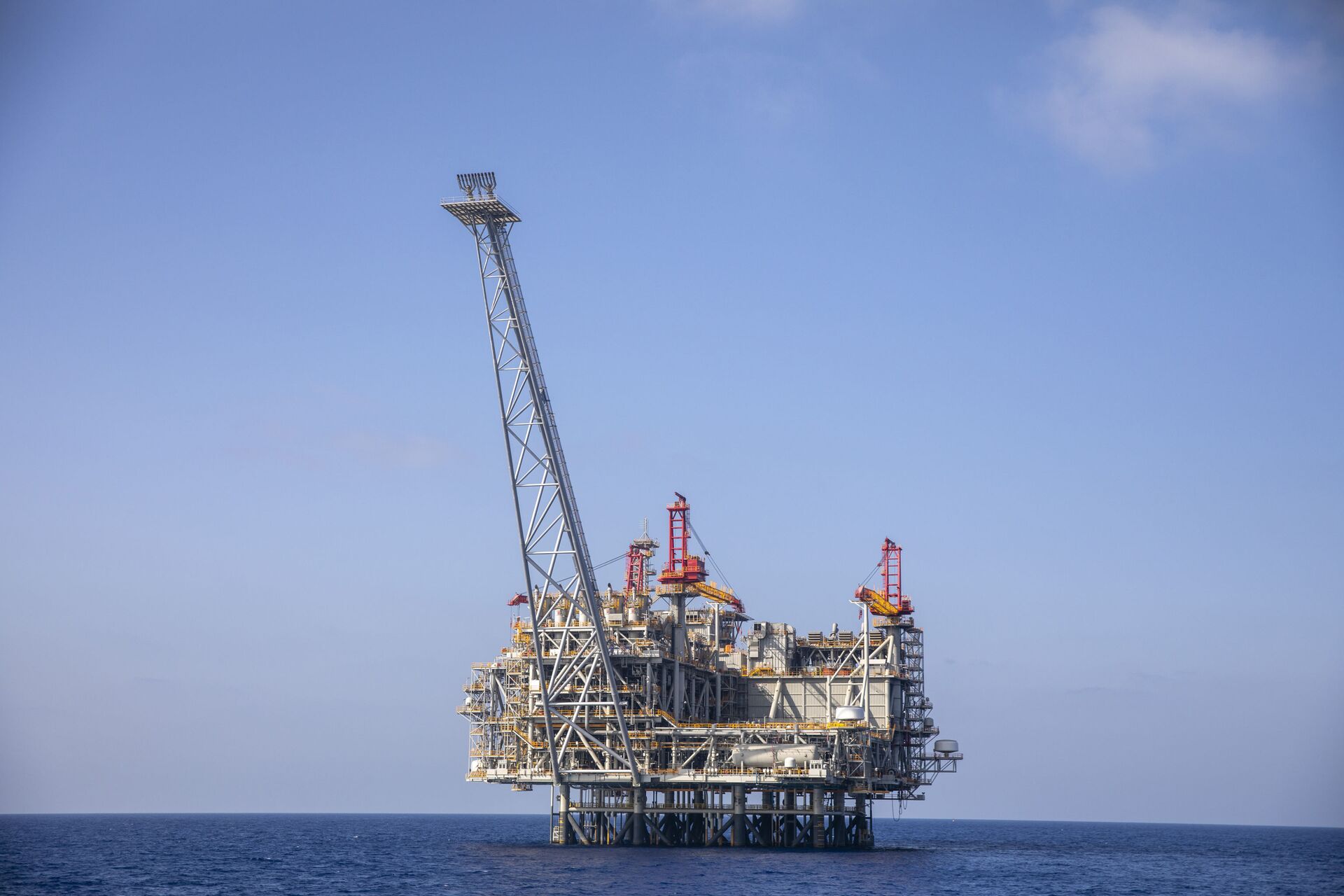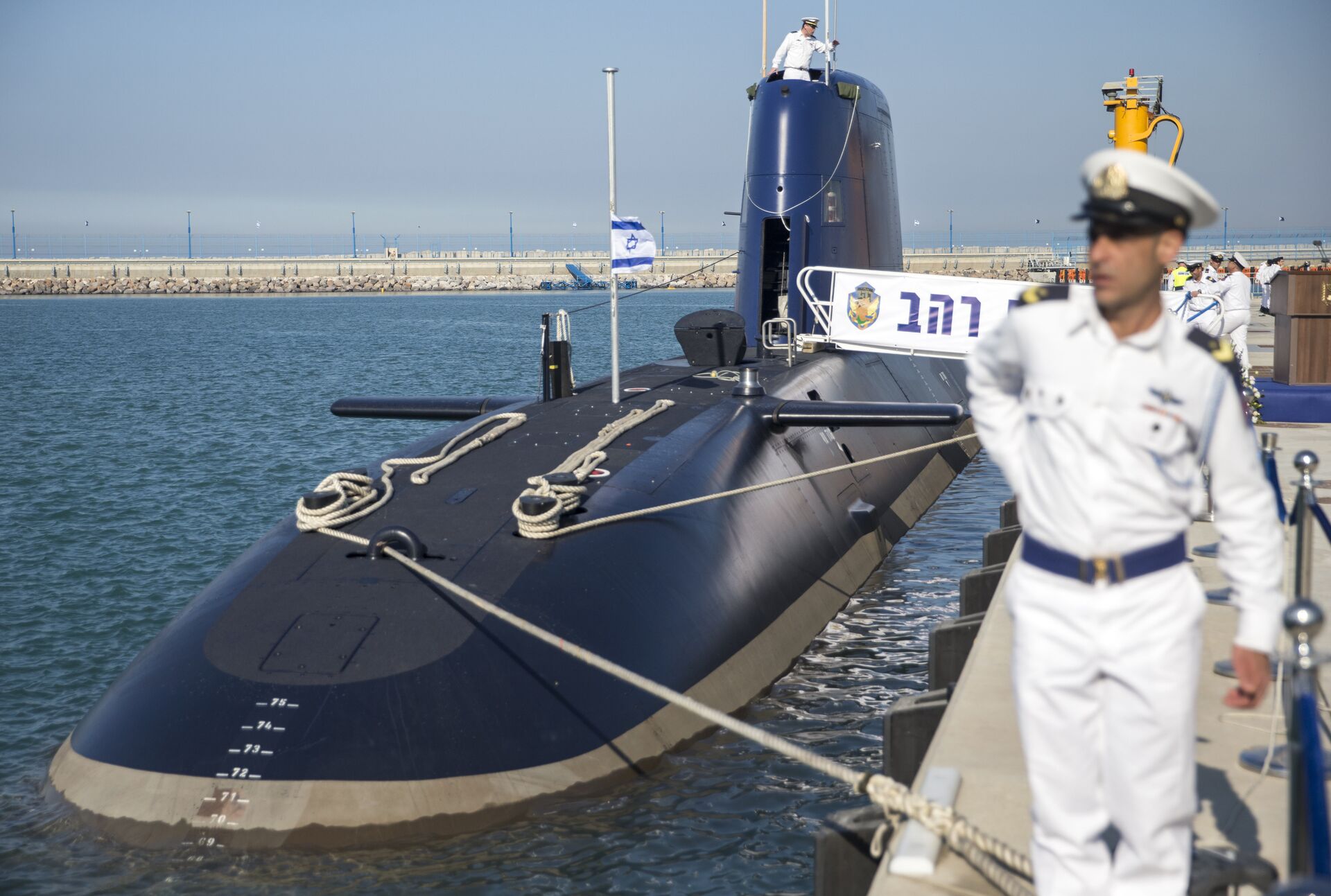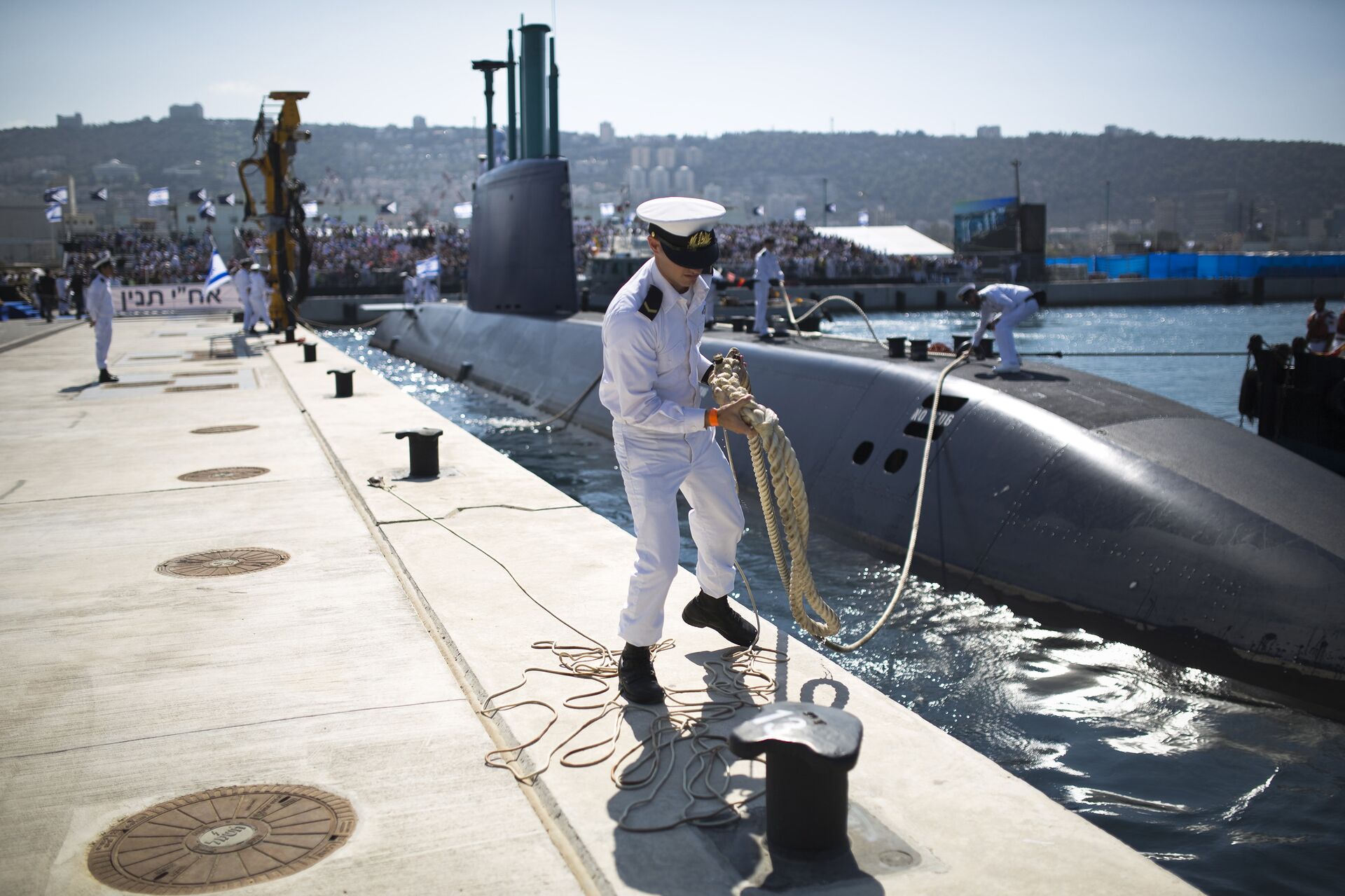More Trouble Lurking for Netanyahu? Israeli Authorities May Open Probe Into Sub Affair
07:49 GMT 23.01.2022 (Updated: 17:25 GMT 15.01.2023)

© AFP 2023 / YONATAN SINDEL
Subscribe
Previously, neither the police nor the Jewish state's attorney general had found enough evidence to link the former prime minister with what could potentially be the biggest scandal in Israeli history. But if the government ends up launching an official investigation, that may all change.
Every Sunday, Israel's government convenes to discuss the most burning issues. Over the past two years, it has been the coronavirus pandemic that continues to take its toll on the country.
This Sunday, the agenda will be topped by another issue, however, the so-called submarine affair, also known as Case 3000.
How It All Began
It all started in 2009 when Michael (Miki) Ganor, an Israeli businessman, approached then-Navy commander Eliezer Marom and Deputy Head of National Security Council Avriel Bar-Yosef to convince them to buy three submarines from the German company ThyssenKrupp Marine Systems.
On the surface, Ganor's offer made sense. That was the year Israel discovered its first gas fields and it wanted to protect them from potential threats emanating from Hezbollah in Lebanon and Hamas in Gaza.

Israel's offshore Leviathan gas field in the Mediterranean Sea, Tuesday, Sept. 29, 2020.
© AP Photo / Ariel Schalit
But the catch was that Ganor was the Israeli representative of ThyssenKrupp and he offered Israeli officials large amounts of cash to make sure that it would be his company, and not any other to get the lucrative deal.
His efforts eventually paid off. ThyssenKrupp finally inked an agreement with Israel. Israel simply needed to fork over more than $1 billion for three submarines and relevant equipment, while the German government bore 30 percent of that cost.
The Twist
Yet, the plot twist is that there were those believed that Israel didn't need these pricey vessels. Then-Minister of Defence Moshe (Boogie) Yaalon thought that enlarging the submarine fleet to nine was an unnecessary adventure, while then-Prime Minister Benjamin Netanyahu believed they were needed not as an addition but as a replacement for three others, set to expire in 2025.
Netanyahu is still held responsible for the "waste" of public funds. But he is also blamed for allegedly knowing about Ganor's deeds, something that he denies.
It doesn't stop there, however. In 2019, there were two more twists in the plot. The first was that Netanyahu purportedly gave Germany the go ahead to sell their submarines to Egypt allegedly in exchange for a discount from ThyssenKrupp and to obtain a detailed plan of what vessels Cairo would receive.

The German-made INS Rahav, the fifth Israeli Navy submarine, arrives at the military port of Haifa on January 12, 2016. In September 2015, Israel received delivery of the fourth Dolphin 2 class submarines from Germany. A third of the cost was funded by Germany as part of its military aid to Israel. The submarines, the most sophisticated in Israel's fleet, can be equipped with missiles armed with nuclear warheads.
© AFP 2023 / JACK GUEZ
The second was the ex-PM held shares in a company that manufactured steel and sold it to ThyssenKrupp and many other clients.
Here again, Netanyahu's story is different. According to him, Germany didn't need Israel's approval to sell its equipment. As for the stocks, he claimed he bought the shares in 2007, when he served as the head of the opposition. He alleges he sold them a year and seven months after he became PM, a deal that allegedly brought him millions of dollars in revenue.
Is a Probe Necessary?
Israel's liberal circles have been pushing for a probe into the submarine affair for years. They have also suggested that Netanyahu should face trial for his alleged involvement.
Earlier, neither the Israeli police, nor Attorney General Avichai Mandelblit had found enough evidence to link the former PM to the case. But things might change after Sunday, if the government approves an official probe into the scandal.

An Israeli naval officer holds the mooring rope of the INS Tanin, a Dolphin AIP class submarine, as it docks at a naval base in the northern city of Haifa, after its arrival in Israel (File)
© AP Photo / Amir Cohen
The timing is interesting. Last Thursday, Israel sealed another multi-billion dollar deal with Germany's ThyssenKrupp, agreeing to buy three submarines at a higher price than what Netanyahu once paid.
The new vessels are expected to replace three old subs, but supporters of the ex-PM are already voicing concerns, saying that double standards are at play here, and noting: What's okay for the current government is not okay for Netanyahu.
